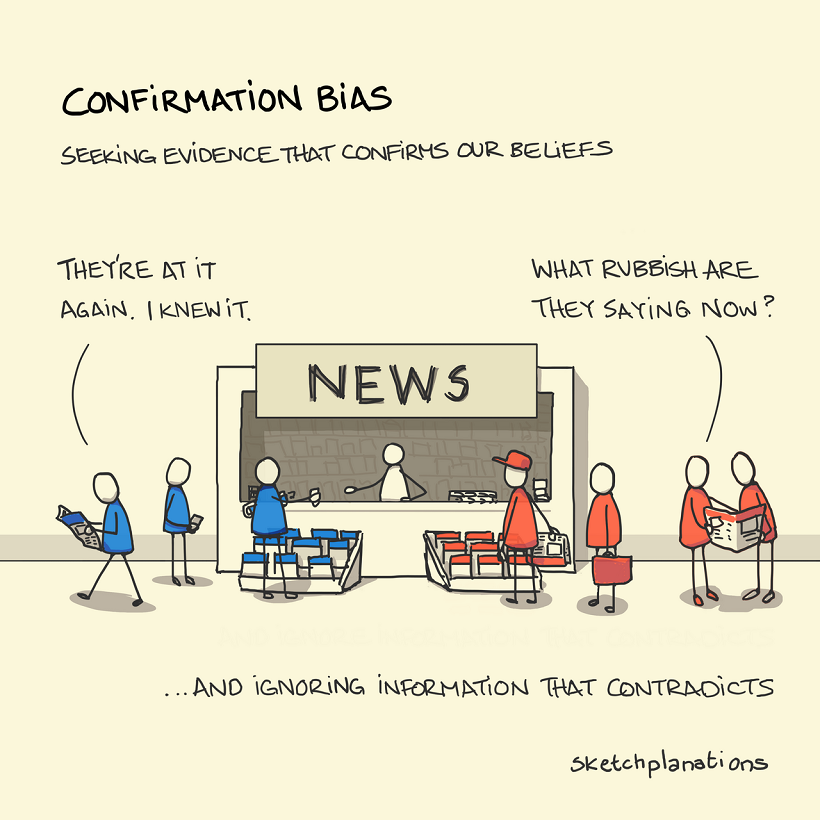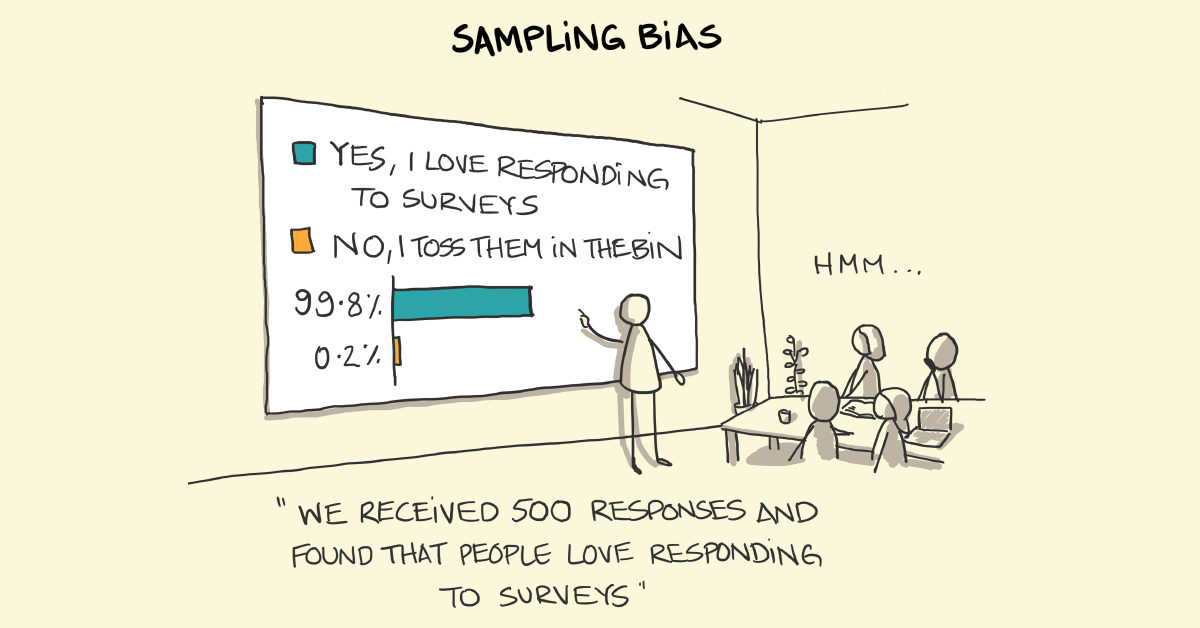In a world of information overload, we can fall victim to all sorts of cognitive biases. Since they can lead us to generate false conclusions, it’s particularly important to understand what these biases are and how they work, as the consequences can become quite drastic.
Confirmation bias, sampling bias, and brilliance bias are three examples that can affect our ability to critically engage with information. Jono Hey of Sketchplanations walks us through these cognitive bias examples, to help us better understand how they influence our day-to-day lives.

One of the most-commonly encountered and understood, you’re likely to have already heard about confirmation bias. This cognitive bias affects the way we test and evaluate hypotheses every day.
In simple terms, confirmation bias is the tendency to seek out or interpret evidence in such a way that supports our own strongly-held beliefs or expectations. This means that, given access to the same set of data and information, different people can come to wildly differing conclusions.
Feeding into confirmation bias can lead us to make ill-informed choices or even reinforce negative stereotypes. For this reason, it is important to remember to seek out information that both confirms and contradicts your presumptions about a certain topic.

 www.visualcapitalist.com
www.visualcapitalist.com
Confirmation bias, sampling bias, and brilliance bias are three examples that can affect our ability to critically engage with information. Jono Hey of Sketchplanations walks us through these cognitive bias examples, to help us better understand how they influence our day-to-day lives.
Confirmation Bias

One of the most-commonly encountered and understood, you’re likely to have already heard about confirmation bias. This cognitive bias affects the way we test and evaluate hypotheses every day.
In simple terms, confirmation bias is the tendency to seek out or interpret evidence in such a way that supports our own strongly-held beliefs or expectations. This means that, given access to the same set of data and information, different people can come to wildly differing conclusions.
Feeding into confirmation bias can lead us to make ill-informed choices or even reinforce negative stereotypes. For this reason, it is important to remember to seek out information that both confirms and contradicts your presumptions about a certain topic.

Cognitive Biases: Three Common Types Illustrated
We fall victim to cognitive biases in our daily lives, far more often than we realize.
 www.visualcapitalist.com
www.visualcapitalist.com
